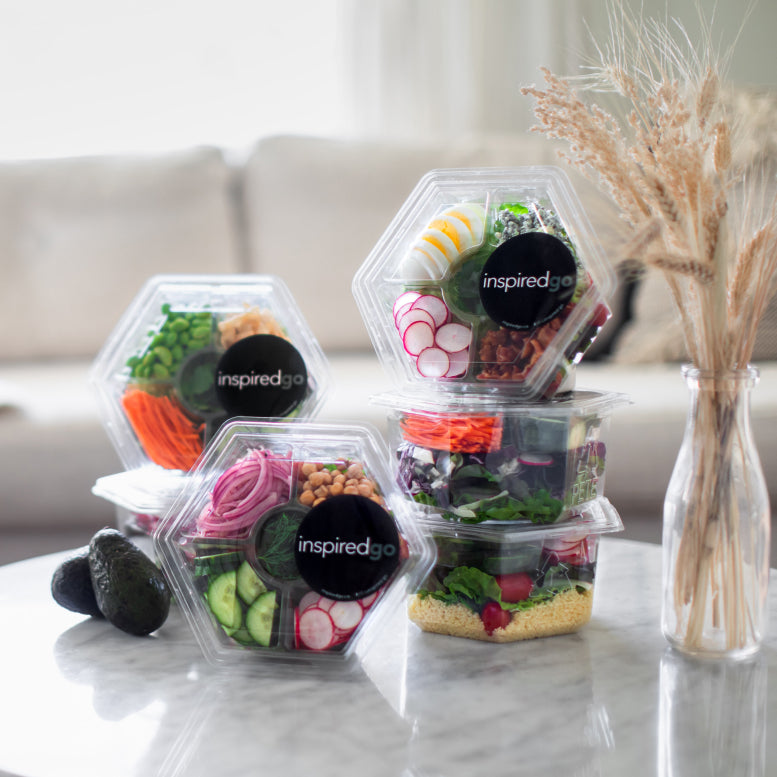Can Vegetarians Eat Eggs?
Table of Contents
1. The Vegetarian Diet and Egg Consumption
2. Are Eggs and Cheese Allowed on a Vegetarian Diet?
3. How to Begin a Vegetarian Diet?
4. How Can Vegetarian Meal Delivery Support Long-Term Health Goals?
1. The Vegetarian Diet and Egg Consumption
Vegetarianism is a dietary choice that has gained popularity for its health and environmental benefits. It involves the exclusion of meat and sometimes other animal products from the diet. However, the consumption of eggs within a vegetarian diet often leads to confusion, as the definition of vegetarianism varies among individuals. Some vegetarians, known as ovo-vegetarians, include eggs in their diet while avoiding meat, poultry, fish, and dairy. This is because they consider eggs an excellent source of protein and other essential nutrients that are harder to obtain from plant-based foods alone. Yet, other vegetarians, particularly strict vegetarians or vegans, avoid eggs due to ethical reasons or personal dietary preferences. Consequently, the question of whether vegetarians can eat eggs depends largely on personal belief systems and dietary choices.
Order fresh salads today →


2. Are Eggs and Cheese Allowed on a Vegetarian Diet?
The inclusion of eggs and cheese in a vegetarian diet depends on the specific type of vegetarianism followed. Lacto-vegetarians consume dairy products but avoid eggs, while ovo-vegetarians include eggs but not dairy. Lacto-ovo vegetarians include both dairy and eggs in their diet. Vegetarian meal delivery services cater to these preferences by offering customizable meal plans that align with individual dietary choices. Protein-rich ingredients such as eggs, paneer, and cheese are incorporated into meals to provide essential amino acids and maintain balanced nutrition. Pre-portioned servings prevent overeating, while nutritional labeling offers transparency regarding protein, fat, and calorie content. With vegetarian meal delivery, customers can easily follow their dietary preferences without worrying about meal preparation or ingredient sourcing.
Choose your salads and schedule delivery →
3. How to Begin a Vegetarian Diet?
Transitioning to a vegetarian diet can feel challenging without proper guidance and planning. Vegetarian meal delivery services simplify the process by providing pre-prepared, balanced meals designed to meet nutritional needs. Each meal is carefully crafted to include essential nutrients such as protein, iron, calcium, and vitamins from plant-based sources. Subscription plans ensure regular deliveries, allowing customers to maintain consistency without frequent planning or grocery shopping. Nutritional transparency helps customers track their intake and understand the benefits of each meal. By removing barriers like ingredient sourcing and recipe planning, vegetarian meal delivery services make it easier for beginners to adopt and stick to a plant-based lifestyle.
Get fresh salads and snacks delivered →
4. How Can Vegetarian Meal Delivery Support Long-Term Health Goals?
Inspired Go supports long-term health goals by offering nutritionally balanced vegetarian meals crafted with fresh, high-quality ingredients. Each meal is portion-controlled and includes key nutrients such as fiber, plant-based protein, and antioxidants. Subscription services allow customers to schedule consistent weekly deliveries, eliminating disruptions in their dietary routines. Detailed nutritional labeling helps customers monitor their intake and align their meals with specific health goals, whether focused on weight management, energy levels, or overall wellness. By removing the barriers of meal preparation and planning, Inspired Go empowers customers to stay committed to their long-term health objectives through reliable and convenient meal delivery.
Try our fresh, ready-to-eat salads →
Frequently Asked Questions
A vegetarian diet focuses on plant-based foods, eliminating meat, poultry, and fish while including fruits, vegetables, grains, legumes, nuts, and seeds. Depending on the type of vegetarianism, it may also include animal-derived products like dairy and eggs. Popular variations include lacto-ovo vegetarian (includes eggs and dairy) and lacto-vegetarian (excludes eggs but includes dairy). The diet is often chosen for ethical, environmental, or health reasons and supports a nutrient-dense lifestyle when properly balanced.
Vegetarian foods include a wide variety of plant-based options like fruits, vegetables, whole grains, legumes, nuts, and seeds. Dairy products such as milk, cheese, and yogurt, as well as eggs, are included in lacto-ovo vegetarian diets. Vegetarian-friendly dishes range from hearty grain bowls and vegetable curries to pasta, soups, and salads. Many processed foods, such as chips or baked goods, can also be vegetarian, though reading labels is key to avoiding hidden animal-based ingredients.
Yes, many vegetarians eat eggs, depending on their dietary preference. Those following a lacto-ovo vegetarian diet include both eggs and dairy products, while lacto-vegetarians exclude eggs but consume dairy. Eggs are an excellent source of protein, vitamins, and minerals, making them a valuable addition to a vegetarian diet. However, vegans avoid eggs entirely, as their diet excludes all animal-derived products, including dairy and honey.
Vegetarians can meet their protein needs by incorporating a variety of plant-based and animal-free sources. Protein-rich options include legumes (lentils, chickpeas, black beans), tofu, tempeh, nuts, seeds, and whole grains like quinoa. For those who consume dairy and eggs, options like Greek yogurt, cheese, and eggs provide additional high-quality protein. Combining different plant proteins, such as rice and beans, ensures a complete amino acid profile, supporting muscle repair and overall health.
Yes, eggs and cheese are allowed on a lacto-ovo vegetarian diet, which includes both dairy products and eggs alongside plant-based foods. These ingredients are excellent sources of protein, calcium, and other essential nutrients. Lacto-vegetarians exclude eggs but include cheese and other dairy products. Vegans, however, do not consume eggs, cheese, or any other animal-derived products, focusing solely on plant-based foods and alternatives.

